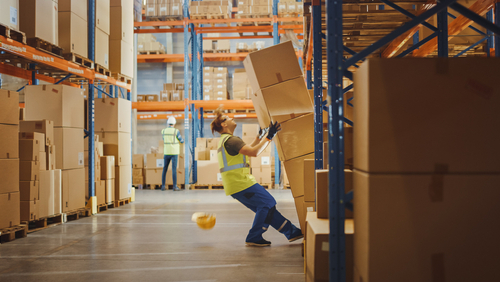In the dynamic landscape of the food industry, an accident is an inherent risk that businesses must navigate. A report from Health and Safety at Work even highlights that the food service and manufacturing industries have a significantly higher number of non-fatal injuries per 1000 workers when compared to other industries.
From slips and falls to machinery-related incidents, the spectrum of potential accidents is vast, and the consequences can be severe. Effectively managing these incidents is not only about addressing immediate concerns but also about safeguarding the compliance and integrity of your business.
The consequences of an accident
The repercussions of accidents in the food manufacturing, storage, distribution, packaging, and brokerage sectors extend beyond the immediate aftermath. The financial implications, potential legal consequences, and the impact on the reputation of the business make accident prevention and management a top priority. It’s crucial to recognise that the right support can make all the difference in dealing with accidents swiftly and efficiently.
Failure to manage accidents with precision can lead to external involvement from local authorities or the Environmental Health Officer (EHO). This external scrutiny not only adds an additional layer of complexity to an already challenging situation but can also result in fines and penalties. This underscores the importance of having a robust accident support system in place.

Measures in place
Accident support goes beyond mere reactionary measures. It encompasses a proactive approach to prevent incidents and ongoing remote support in the aftermath of an accident. This support is vital for offering advice on accident prevention and ensuring that health and safety procedures are consistently adhered to. Demonstrating a commitment to safety through comprehensive accident support not only protects your employees but also promotes the overall well-being of your business.
In the food industry, compliance with health and safety regulations is paramount. The right accident support services ensure that all aspects of compliance are rigorously adhered to, from dealing with accidents to meticulous accident reporting, administration, and staying updated on relevant legislation. This meticulous approach not only safeguards your business from potential legal consequences but also fosters a culture of transparency and responsibility.
The cost
The cost of accidents extends beyond immediate financial implications. It affects employee morale, productivity, and the overall stability of your business. With the right accident support, businesses can focus on what matters most – their core operations. By entrusting accident support services to experienced health and safety consultants, companies can navigate the complexities of compliance, leaving them better prepared to handle the challenges of the food industry.

Transparency and reporting
Recording incidents, irrespective of their size, is a fundamental part of safety best practices. An accident book serves as a tool for this purpose, emphasising a commitment to detail and transparency. It not only records incidents but also ensures they are documented, signed off by both parties, and meets the legal requirement to report accidents causing an employee to be off for three consecutive days.
Understanding what needs to be reported is essential for compliance. From the death of any person to specified injuries, over-seven-day incapacitation, occupational diseases, and dangerous occurrences, adherence to reporting requirements is crucial for maintaining a safer workplace.
Accident support is not just a service; it’s a strategic imperative for the food industry. By recognising the importance of a comprehensive accident support system, businesses can navigate the complexities of the industry while safeguarding their employees and ensuring compliance with regulations.
For businesses in need of accident support tailored to their unique needs, exploring specialised services, such as those offered by Complete Food Safety, can make a significant difference in mitigating risks and promoting a safer working environment.

